INDIGENOUS DADS
Indigenous Men as Fathers
Not so long ago an Indigenous man might have been laughed at for pushing a stroller. But these days, many fathers, including First Nations fathers are not only pushing strollers, they are learning how to do many of the parenting tasks that were once considered a mother’s responsibility.
The role of the father is changing in Indigenous society, just as the roles played by mothers and fathers are shifting in mainstream Canadian society. When we think of the traditional role of the father in Indigenous cultures we think of the hunter who provided food and shelter for his family. Many men, particularly those who live in urban settings, are no longer able to carry out that traditional role. But as elders point out, there are other important roles for fathers and men to play in their communities – teacher, healer, scout, protector and leader. And surely a man who can spend time caring for his children, playing with them and guiding them on a daily basis is fulfilling those important fatherhood roles.
Another important part of fatherhood in traditional teachings is being a good role model for children. Being a role model can very challenging for Indigenous men who grew up without the presence of strong, caring fathers and grandfathers in their lives. This was often a result of the recent difficult history of Indigenous peoples in Canada, which includes residential schools, being moved off of traditional lands and other policies which caused great disruption to Indigenous culture and families.
Therefore, some Indigenous fathers are trying to give their children something that they did not have themselves. As one man put it, “I had no tracks to follow, but I have tried to give my children tracks to follow.” And at the same time, some men are dealing with mental health problems, addictions and other wounds resulting from the damage to Indigenous families and culture in past decades.
How are men dealing with these challenges? Some Indigenous men have learned that they need to go on a healing journey in order to be able to become the fathers that they want to be and that their families need them to be. This is not easy. In fact, it involves taking a risk and perhaps experiencing some pain along the way. As one Indigenous father put it, “Some men are still learning to be comfortable with truth, because the truth can make you look bad or feel bad. But in another way, the truth releases you, because it helps you know what you need to deal with and what work you need to do to become the man and father that you want to be.”
One important thing to keep in mind is that if you are finding that personal problems are making it difficult for you to assume the role of father, you are definitely not alone, even though it might feel that way sometimes. Over the past ten years there has been an increasing awareness of the need to support First Nations fathers so that they can have healthy, fulfilling relationships with children and women. In many communities men are starting to come together to talk about their personal struggles on the road to becoming good fathers. So if you are struggling with some of the issues discussed here, look for help in your community. Many Indigenous fathers say that getting back to their culture has been an important part of their healing. You can be part of the turnaround generation of fathers who are forging new pathways to fatherhood for Indigenous men.

Indigenous Men as Fathers
/in INDIGENOUS DADS /by ndbadminBabies cry. It’s just one of the things they do. Some cry a lot, some, not so much.
Father/Child Relationships
/in INDIGENOUS DADS /by ndbadminBabies cry. It’s just one of the things they do. Some cry a lot, some, not so much.